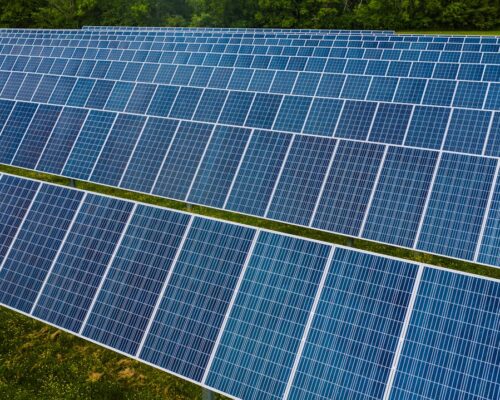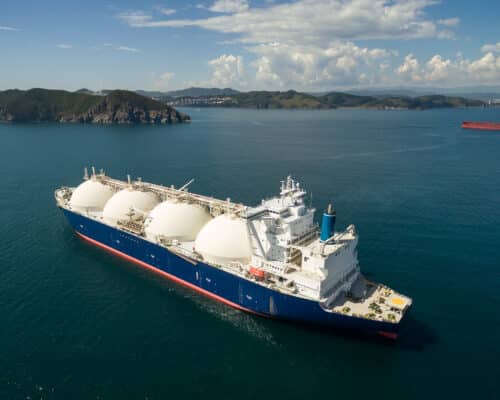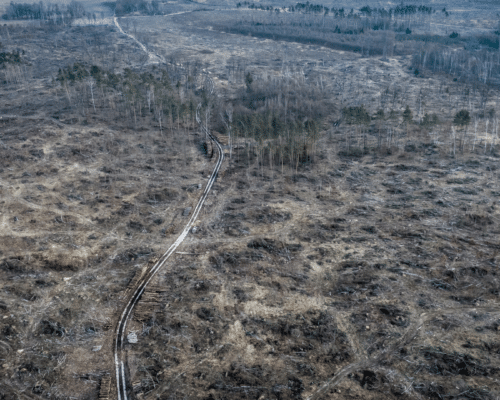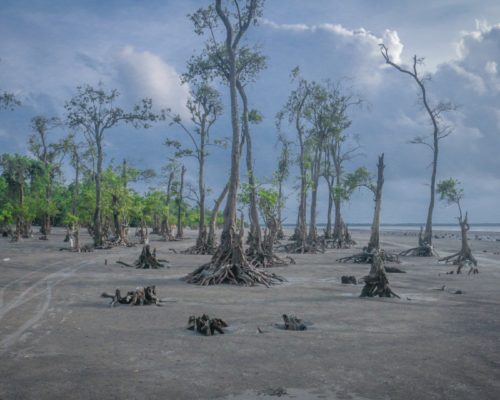Op-Ed: Analysis of the Vietnam JETP Resource Mobilisation Plan
Photo: Shutterstock / Dong Nhat Huy
13 December 2023 – by Center for Energy, Ecology, and Development (CEED)
On December 3, 2023, Vietnam launched the Resource Mobilisation Plan (RMP) to implement the Just Energy Transition Partnership (JETP) between Vietnam and its International Partners Group (IPG), a group of nine countries co-led by the United Kingdom and the European Union, with Canada, Denmark, France, Germany, Italy, Japan, Norway, and the United Statues as its members.
A total of USD 15.5 Billion in initial finance will be given to Vietnam. A total offer of public finance of USD 8,077.2 million is committed by the IPG, of which USD 321.5 million are grants, USD 2,185 million are sovereign concessional loans, USD 527.7 million are non-sovereign concessional loans, USD 310 million are commercial DFI equity, USD 240 million are commercial DFI guarantees, USD 4,229 million are commercial DFI loans, and USD 264 million are still to be defined. The Glasgow Financial Alliance for Net Zero (GFANZ) shall provide the rest, subject to the catalytic public sector finance mobilisation by the IPG members and improved regulatory frameworks. The GFANZ loans will be offered at market rates, and projects will be assessed individually. GFANZ will provide commercial loans, which can be structured in different ways depending on the needs of the projects.
The JETP RMP focuses on eight action categories:
1. Improvement of the regulatory framework for the energy transition;
2. Acceleration of the transition from coal power to clean energy;
3. Development of the industrial and service ecosystem for renewable energy;
4. Energy saving and energy efficiency;
5. Upgrading of power transmission and energy storage systems;
6. Green energy transition and greenhouse gas emissions reduction in the transport sector;
7. Innovation, development, and technology transfer; and
8. Ensuring a just energy transition.
Vietnam intends to significantly reform the Law on Electricity to enhance energy transition investments and establish a legal framework to achieve net zero emissions. A Coal-Fired Power Plant Retirement Roadmap with an implementation plan and regulatory framework for phaseout will be developed on transitioning coal power plants. The roadmap will include transitioning coal power generation plants to biogas, green ammonia, or other clean energy sources. On the development of the renewable energy industry, Vietnam intends to promote offshore wind development; increase off-grid, rooftop, and multi-use solar PV installations that integrate net-metering; create a national roadmap on green hydrogen, and develop mechanisms and regional industrial hubs that promote the production, repair and maintenance of renewable energy equipment, and establish standards for energy efficiency technologies. Vietnam also intends to have a national plan to develop EV charging infrastructure.
Vietnam is positioning to establish an International Centre for Renewable Energy to share expertise, support skills development, understand technology and facilitate cooperation with the private sector on technology development, transfer, and renewable energy development acceleration. A renewable energy R&D fund is also planned, including contributions from international organisations and domestic and foreign businesses.
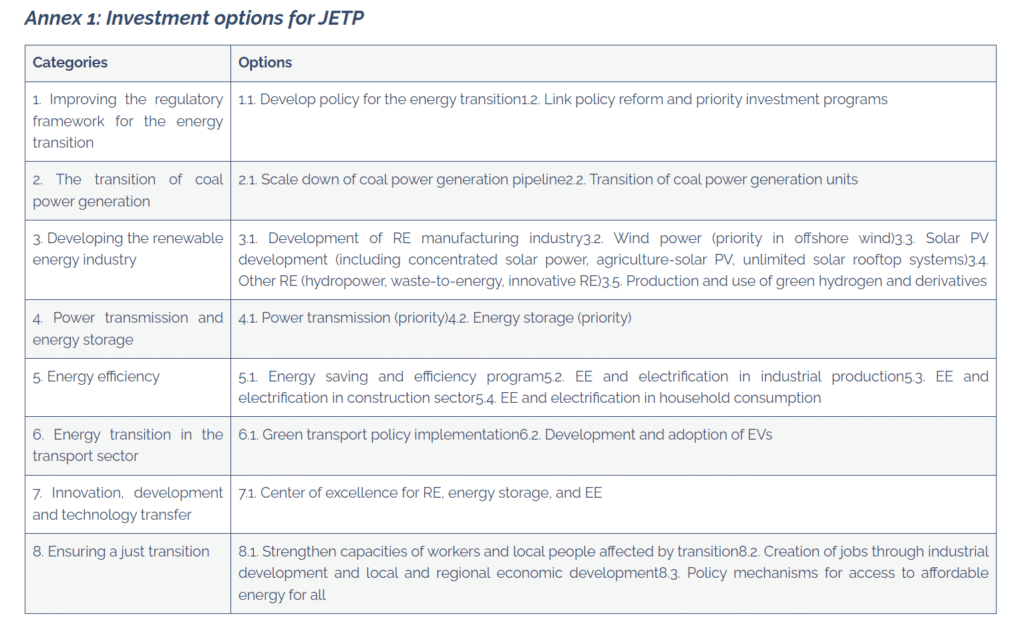
Analysis
Financing. While the commitment of USD 15.5 Billion in initial financing can accelerate the development of energy and transport systems towards Vietnam’s decarbonisation, only USD 321.5 Million, or 2.1%, comes in the form of grants. The rest come in the form of loans (92.7%), equity (2.0%), guarantees (1.5%) and undefined funding (1.7%).
This implies that while the IPG will provide funding for Vietnam’s energy transition, it will ultimately be the Vietnamese people who will pay for its energy transition. Around 48% of the loans under the Vietnam JETP will have market-level interest rates, meaning that, after interest, whatever grants or technical assistance were provided by the IFG have already been recovered by the IFG countries.
Coal phaseout. Vietnam’s explicit declaration of a “coal power plant phaseout” in the RMP and its provision for the creation of a Coal-Fired Power Plant Retirement Roadmap provide an unambiguous policy signal that the Vietnamese government is on its track towards zero coal. Its phased implementation, particularly its moratorium on developing new coal-fired power plants after 2030, then focusing on the removal of imported coal in its supply in the short-term after 2035, can cushion the shock to its labour sector, where almost 150 thousand jobs are dependent on coal power generation and coal mining. However, the speed of coal phaseout remains questionable, considering that decarbonisation projections consistent with a 1.5 C scenario require much faster coal phaseout timelines. Furthermore, propositions in the Vietnam JETP RMP for co-firing ammonia in coal plants and the retrofitting of existing coal plants for other fuels are red flags that prolong, rather than phase out, Vietnam’s coal fleet.
Fossil gas expansion. One of the most concerning aspects of the Vietnam JETP RMP is the inclusion of the “development of mixed gas turbine using LNG that displaces coal” as a key option for accomplishing the transition of coal power generation units (Investment Category 2.2 in the RMP). Considering that fossil gas also emits substantial carbon emissions and brings the risk of releasing methane into the atmosphere, the consideration of fossil gas to displace coal defeats the main purpose of the coal phaseout. Only clean, renewable energy sources should be considered to accomplish decarbonisation targets.
Renewable energy development. A key highlight in the Vietnam JETP RMP is the development of regional industrial hubs to produce, repair, and maintain the new energy systems. This is an important action that will enable Vietnam to wean itself away from importing energy technologies from Global North countries and position itself as an energy technology hub in the region. However, important safeguards, such as intellectual property rights provisions, should be in place for Vietnam to maximise this policy for facilitating a technological transfer that will be advantageous to itself. Likewise, most renewable energy investment priorities included in the RMP trend toward developing large-scale, centralised facilities, which risks increasing reports of development aggression and clearing forested lands and marine habitats to provide room for renewable energy development. The articulation of mechanisms for promoting the development of household- and community-scale renewable energy also needs to be improved. Just transition. Vietnam’s RMP includes provisions on the energy transition’s impacts on workers, communities, and businesses and proposes a set of investment priorities that includes social security and support mechanisms, training for green job workers, support for Vietnamese businesses to participate in renewable energy value chains, regulations for enabling multi-purpose land use to mitigate land use impacts, targeted development programs for MSMEs and marginalised sectors, and continued support for 100% electrification. Much is commendable to this end. However, there is a lack of integration of reparatory mechanisms incurred by communities exposed to the coal projects subject to the RMP and their future exposure from the continued operation of said plants, including in cases of retrofitting. There is a need to ensure that safeguards and safety nets will be implemented in a people-centred manner.
1 Vietnam is currently leading massive gas and liquefied natural gas power expansion in Southeast Asia. This is detailed in the report ‘Confronting a Fossil Future: Stopping the Gas Detour in Renewables-Rich Southeast Asia’, available at www.ceedphilippines.com.
2 A new report from the Center for Energy, Ecology, and Development (CEED) illustrates the air quality impacts of fossil fuel operations, particularly coal, in select sites in the Philippines. Read ‘The Invisible and Fatal” at www.ceedphilippines.com.
Center for Energy, Ecology, and Development (CEED) is a think-do organisation that conducts research and advocacy and partners with communities and basic sectors for energy democracy, ecological integrity and a people-centred development. Established in 2015, CEED is composed of individuals with a heart for the environment and for the people.
Disclaimer: The views and opinions expressed in this article are those of the author and do not necessarily reflect the official policy or position of Energy Tracker Asia

